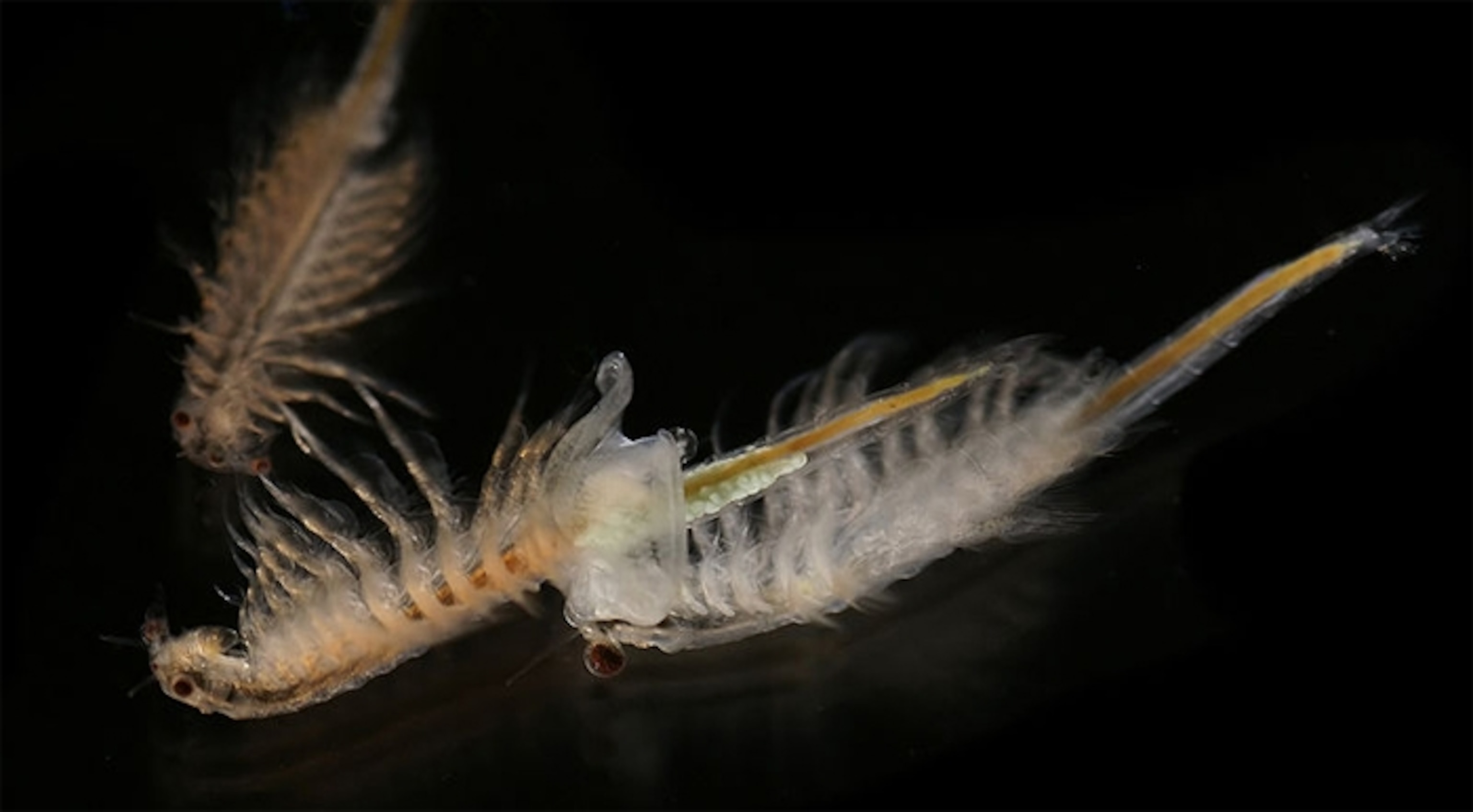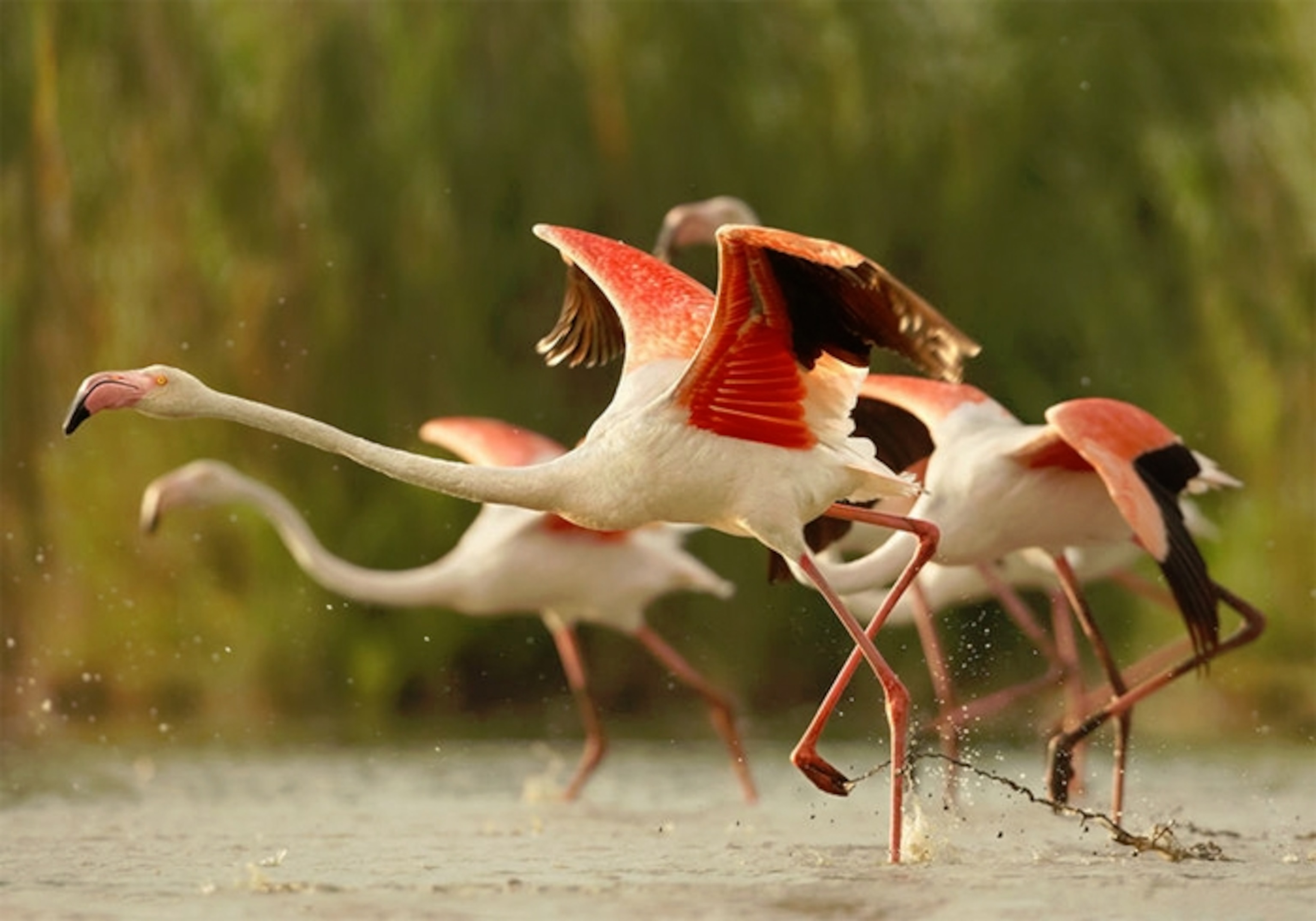
Parasites Make Their Hosts Sociable So They Get Eaten
Many animals come together to find safety in numbers. In teeming herds, flocks, shoals and swarms, it’s harder for a predator to track and isolate any single individual. This is the standard view of animal groups, as espoused in countless nature documentaries. It rests on one big assumption—that the animals are in charge of their own behaviour. And that is not always true.
French scientists Nicolas Rode and Eva Lievens have found that two species of shrimp form swarms because they are being controlled by parasites in their bodies. Some of these need to get into birds to complete their life cycle. Others need to pass from one shrimp to another. They all achieve this by controlling their hosts and making them gather in large conspicuous swarms. The parasites can more easily jump into fresh hosts if the shrimps are swarming, and the swarms are more easily spotted and devoured by flamingos.
It’s a sinister twist on animal gatherings: Rather than finding safety in numbers, the shrimp are being collectively herded towards death’s door by unseen forces.
Rode and Lievens studied two species of brine shrimp—small crustaceans that looks like legs and eyes attached to a splinter. (You probably know them as sea monkeys.) Each one is just a centimetre long, but they gather in temporary swarms that can stretch for up to 2 metres. There are many possible explanations for these swarms, but none of them can fully explain what’s going on. The shrimp aren’t gathering in places rich in food or nutrients. They’re not avoiding predators, because they’ll still swarm in water that’s too salty to support fish. And while some species gather to mate, others reproduce by cloning themselves. Sex cannot be the only explanation.
Rode and Lievens turned to parasites. If animals are behaving in odd ways, it’s always worth considering that parasites could be influencing them. Many of these body-snatchers are also pharmacists that commandeer the brains of their hosts to create head-banging caterpillars, docile cockroaches, suicidal crickets and fearless rats.
The brine shrimps are frequently infected by two species of fungi called microsporidians, and a tapeworm that also parasitizes flamingos. Rode and Lievens found that all three of them are more common in swarming shrimps than in solo ones. Why?
By forcing the shrimp into swarms, the tapeworm might make it easier for flamingos to find them. The team haven’t done the critical experiment to actually test this, but it seems like a reasonable hypothesis. And in earlier studies, they have already shown that the tapeworm makes shrimps more conspicuous by turning them from transparent to red. It also lengthens their lives, increases the time they spend at the water’s surface, and castrates them so they don’t waste time on sex. All of these changes could increase the odds that the shrimps become flamingo-food. Creating swarms might be just another mind-bending trick in the tapeworm’s repertoire.

The fungi don’t need to get into flamingos. They only infect the shrimp, and spread when uninfected individuals eat the faeces of infected ones. The best way of guaranteeing this, as Rode and Lievens found, is to drive the infected donors upwards, so they swim above their future recipients. This might explain why the fungi-bearers were especially likely to swarm at the surface while the tapeworm-carriers formed groups at all depths. From the surface, the infected shrimps release a blizzard of spore-carrying poo that rains down upon the healthy shrimps below.
It is unlikely that the parasites invented swarming behaviour out of nothing. In one of the shrimps that the team studied, males are twice as likely to swarm as females, which suggests that they gather for some sort of sexual purpose. The tapeworm and fungi probably evolved to exploit this existing behaviour for their own gains. Another of the team’s brine shrimps reproduces by cloning itself, but it might retain the neural circuits for swarming – circuits that the parasites can still tap into.
There are probably other similar examples just waiting to be found. After all, the tapeworm and fungi come from entirely different kingdoms of life, and they target two species of shrimp that have been separated for 32 million years. And Ashley Ward from the University of Sydney has shown that sticklebacks are also more likely to shoal if they are infected with microsporidians. How many of the swarms and shoals that we see are nothing to do with defence or sex or cooperation, but everything to do with manipulative body-snatchers?
More on mind-controlling parasites:
- Mind-controlling virus forces parasitic wasp to put all its eggs in one basket
- Liquefying virus uses one gene to make caterpillars climb
- Pocket science – ancient death-grip scars
- The wasp that walks cockroaches
- Parasitic wasp turns caterpillars into head-banging bodyguards
Reference: Rode, Lievens, Flaven, Segard, Jabbour-Zahab, Sanchez & Lenormand. 2013. Why join groups? Lessons from parasite-manipulated Artemia. Ecology Letters http://dx.doi.org/10.1111/ele.12074